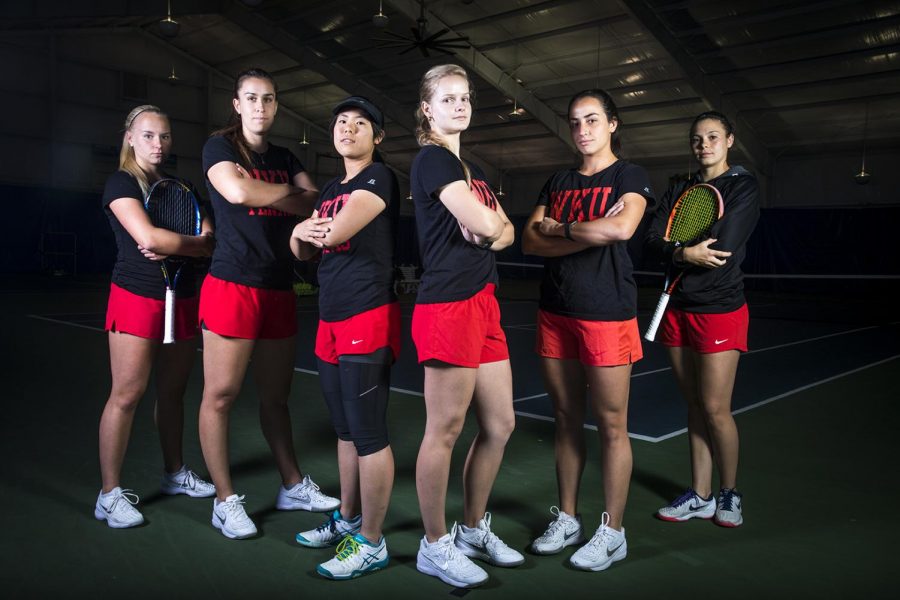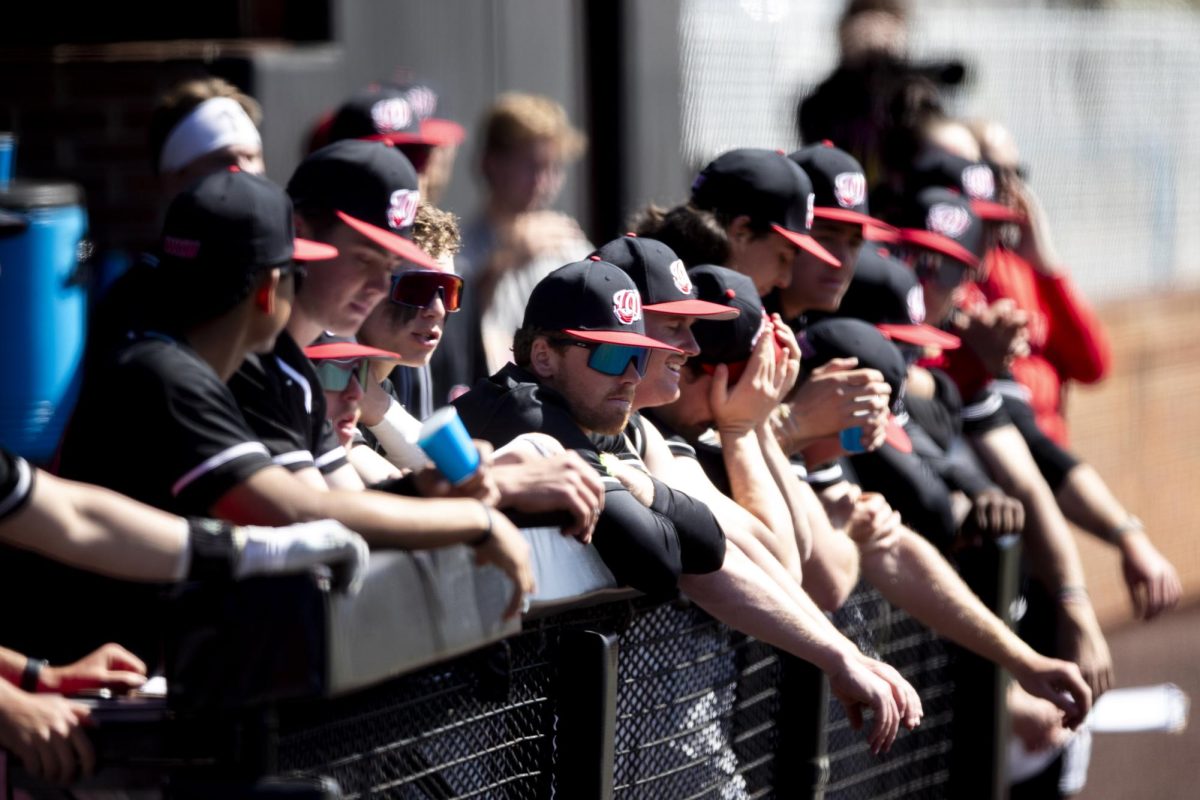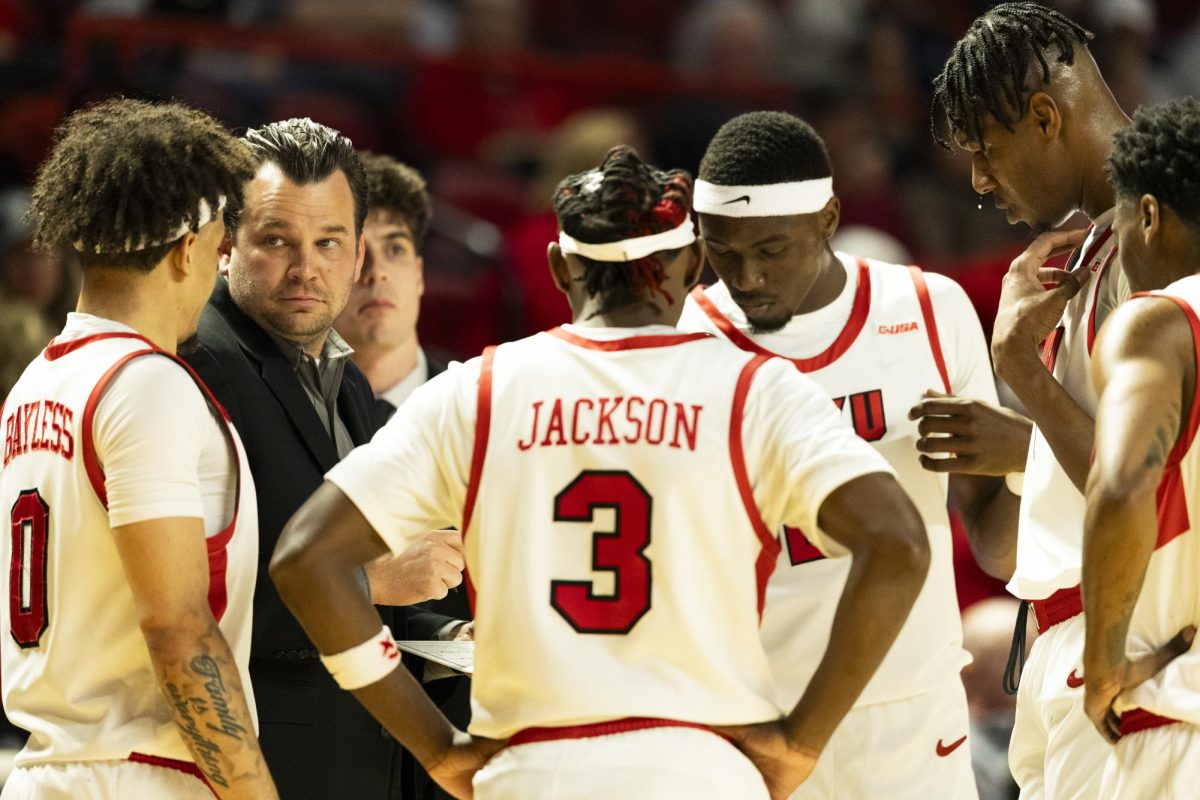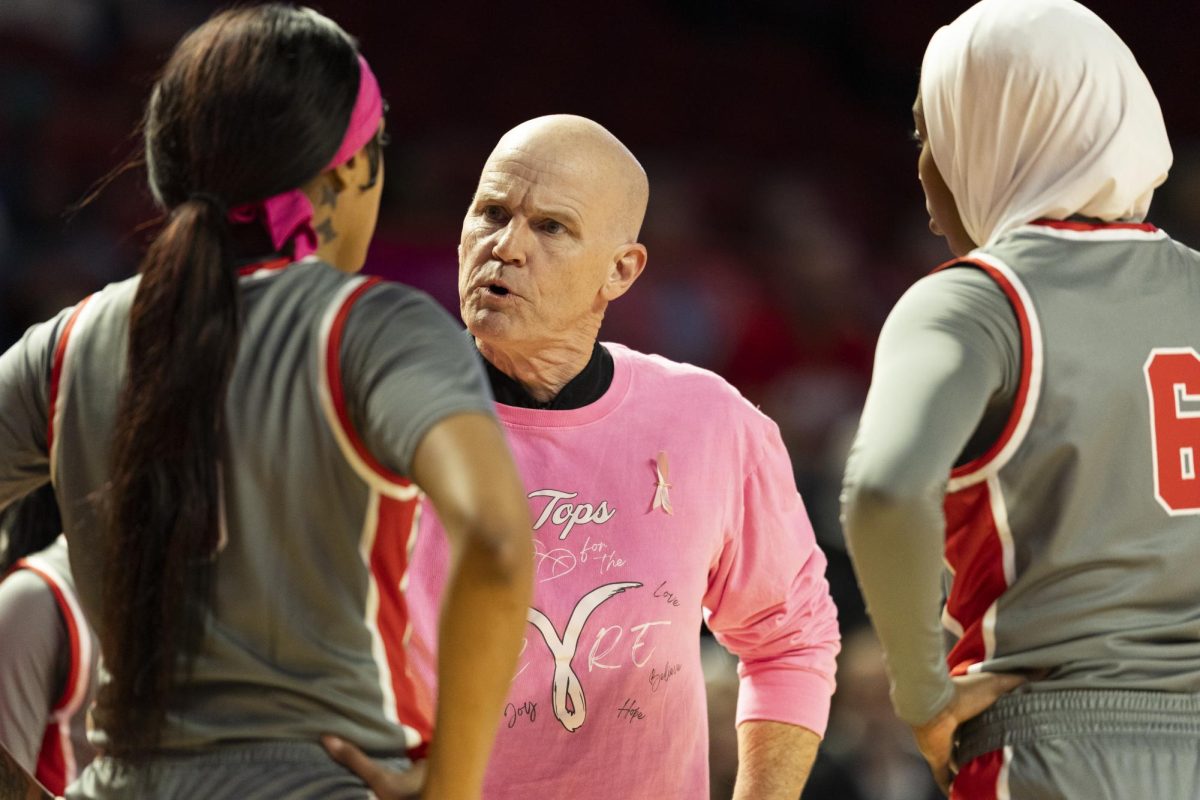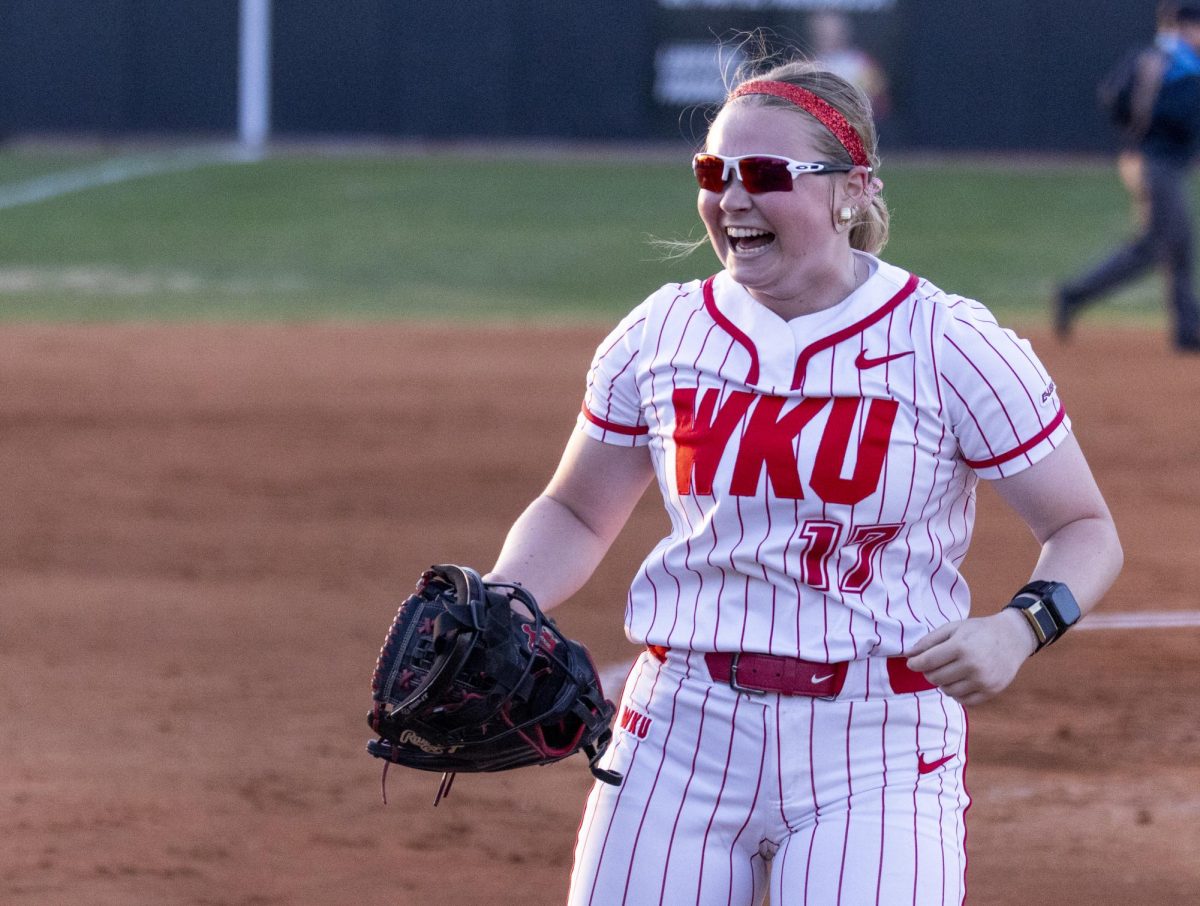Lady Topper tennis finds success by embracing differences
April 23, 2018
The 2018 WKU tennis team featured six players from six different countries, which created a diversity and blending of cultures that the Lady Toppers embraced, forming a bond that extends well beyond the court.
Members of the tennis team were recruited to WKU by head coach Jonatan Berhane, and they all traveled similar paths to Bowling Green. They decided to leave their home countries in order to attend college in the United States, which graduate student Elpida Malamou said many international players do if they want to pursue education while still furthering their tennis career.
“Back home in Greece, we don’t have college athletics,” Malamou said. “You either go to university and study, or you turn pro. You can try to do both, but it’s really hard. Coming here is the best option for someone who’s not sure what she wants to do because you can get four years of doing both. After that, you can decide to study more or you can try going pro.”
Malamou decided she would remain at WKU for an extra year to pursue a graduate degree, and she said the main reason that she was in no hurry to leave was because of the camaraderie she had formed with her teammates.
“I stayed because this is the best group we have ever had,” Malamou said. “I had fun the previous years too, but this group is so good because we are all different. When they told me that I could get a master’s and be around people I like for one more year, there was no reason for me not to do it.”
Sophomore Monica Malinen received scholarship offers from numerous programs, but said she only visited WKU. Malinen is from a small town in Finland, which she said caused her to prioritize an intimate campus environment.
Adjusting to life in America has been difficult for Malinen, but she said that she feels at home on the court, especially with her doubles partner, Moka Ito, a freshman from Fukushima, Japan.
“Last year I had some difficulties finding a good doubles partner, but doubles with Moka is going pretty well,” Malinen said. “She hits flat shots like my doubles partner back in Finland, which makes it easy to play with her. Moka understands English very well, but she has some difficulties speaking, so when I’m playing with her I take the speaking role.”
The language barrier that exists on the team is not as difficult to navigate as people might assume, mostly because English is not any player’s first language. Senior Violetta Shatalova said since everyone is learning, understanding each other is a lot easier.
“English is not our native language, so we understand when someone makes mistakes,” Shatalova said. “I can figure out what someone is saying based on body language or context. We don’t care if someone’s grammar is perfect because we can get the feeling of their major idea.”
Shatalova said the atmosphere surrounding the team has always been very inviting, which made her feel welcome when she arrived from her home country, Belarus.
“I heard a lot of stories about how when freshman come, seniors make them collect the balls and do all of the dirty work,” Shatalova said. “On our team we don’t differentiate like that, we treat everyone the same. I think that being a tennis player brings a lot of knowledge and experience to your life, which you will appreciate, maybe not now, but later for sure.
For sophomore Natalia De Ugarte, one of the hardest parts about coming to WKU was leaving her family in Bolivia behind. She said since she has arrived in the U.S., she has become a lot more responsible and accountable for her actions.
“I’m the youngest of four siblings, so I was always the little baby in my house back home,” De Ugarte said. “I used to have my parents fix everything for me. If I was tired one day and I didn’t want to go to practice, I was like, ‘I’m not going today.’ That was something that had to change in my mind, so overcoming that and learning to be stronger has been a really good experience.”
De Ugarte’s main doubles partner, sophomore Cindy Oest, is from Paraguay. De Ugarte said she knew Oest before they started at WKU because they are both from neighboring countries in South America. Though she has been around Oest longest, De Ugarte said she has become close with all of her teammates because they have spent so much time together.
“Since we are all far away from family, we try to stay together and support each other,” De Ugarte said. “We are basically like family because we are together on weekdays and the weekends too. Whenever we have free time, we will definitely go do something fun together. I love the team, and our friendship is strong because my teammates make it special.”
The Lady Toppers said they all possess their own individual cultural characteristics, which sometimes causes turbulence in their relations with one another.
“Greeks are very outgoing and social, so I may say some things that might sound mean. I don’t mean it that way. I just don’t want to keep things inside,” Malamou said.
“In Finland, we never play tennis as a team. I’m a team player, but it’s kind of weird for me to play an individual sport this way because I can lose, and the team can still win,” Malinen said.
“Latins love partying, and we are the hype people. Sometimes in practice everyone is like, ‘Natalia, please stop smiling and focus.’ I say sorry and stop messing around,” De Ugarte said.
Upon first glance, the six members of the WKU tennis team could not be more different. Though it would be easy to allow their differences to drive them apart, the team has chosen to use their diversity as an opportunity to learn about other cultures. Shatalova said the girls have been able to turn what most would perceive as a negative into one of the team’s biggest assets.
“I really think you can gain much more knowledge talking to five people from different countries than talking to 20 people from the same area as you,” Shatalova said. “Being around people from various countries is exciting because everyone has their own cultural backgrounds and world views to share.
“It’s hard to find players who can play tennis, study well and also have good personalities, but our coach has been able to do that.”
The tennis team’s season came to an end in the quarterfinal of the Conference USA Tournament last week, as the Lady Toppers fell to Rice. This was the final season of eligibility for Malamou and Shatalova. Malamou departs as the winningest player in program history, with 44 career singles match victories, and 27 career doubles wins.
Features reporter Drake Kizer can be reached at 270-745-2653 and clinton.kizer287@topper.wku.edu. Follow Drake on Twitter at @drakekizer_.


